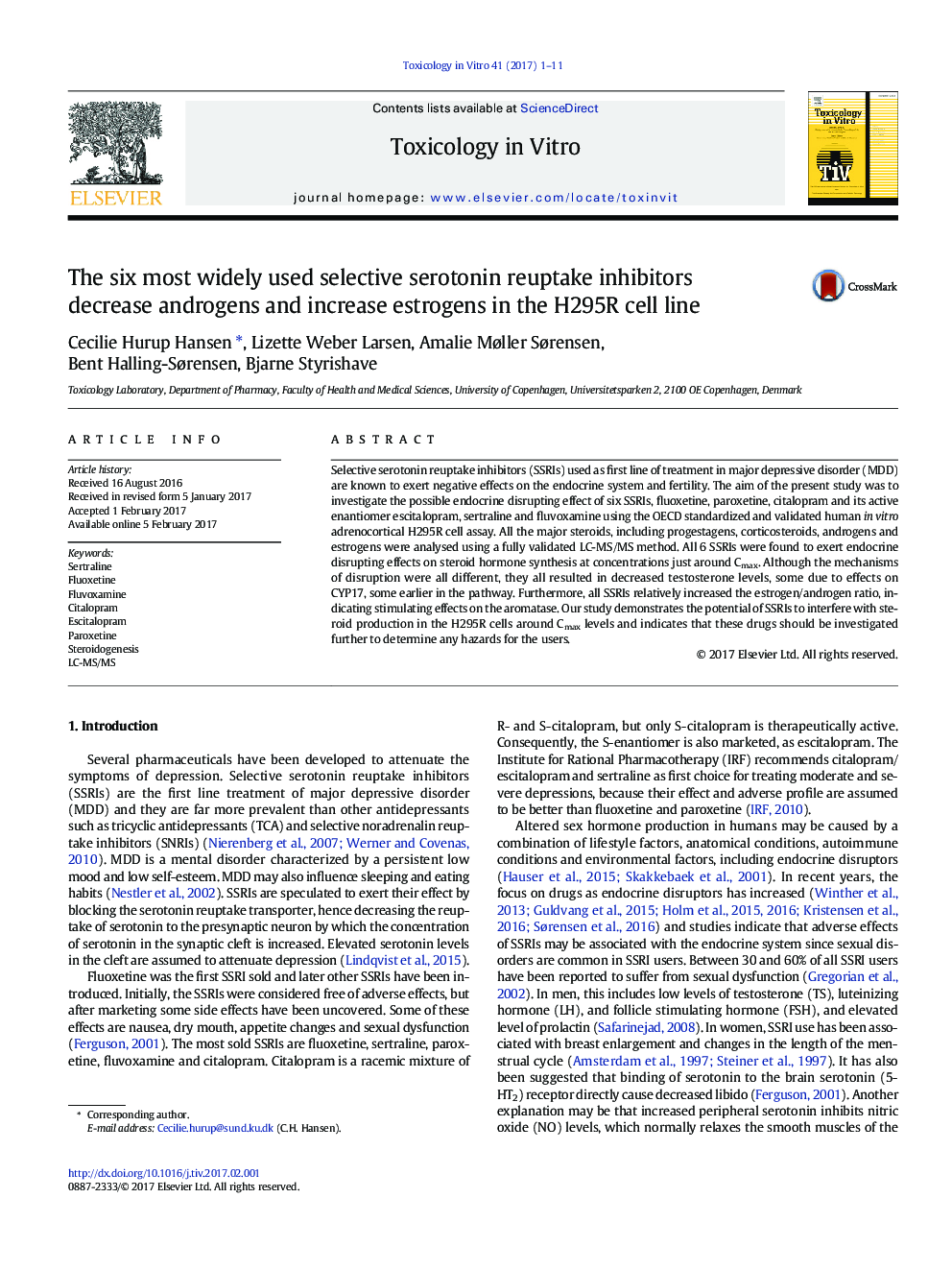| Article ID | Journal | Published Year | Pages | File Type |
|---|---|---|---|---|
| 5562663 | Toxicology in Vitro | 2017 | 11 Pages |
â¢The effects of 6 SSRIs on steroid production were investigated in H295R cells.â¢All 6 SSRIs were shown to inhibit androgen production.â¢CYP19 substrate/product ratios increased for all 6 SSRIs.â¢All the major CYP enzymes in the steroidogenesis were affected by the SSRIs.â¢Based on product/substrate ratio the aromatase was the only enzyme consistently stimulated.
Selective serotonin reuptake inhibitors (SSRIs) used as first line of treatment in major depressive disorder (MDD) are known to exert negative effects on the endocrine system and fertility. The aim of the present study was to investigate the possible endocrine disrupting effect of six SSRIs, fluoxetine, paroxetine, citalopram and its active enantiomer escitalopram, sertraline and fluvoxamine using the OECD standardized and validated human in vitro adrenocortical H295R cell assay. All the major steroids, including progestagens, corticosteroids, androgens and estrogens were analysed using a fully validated LC-MS/MS method. All 6 SSRIs were found to exert endocrine disrupting effects on steroid hormone synthesis at concentrations just around Cmax. Although the mechanisms of disruption were all different, they all resulted in decreased testosterone levels, some due to effects on CYP17, some earlier in the pathway. Furthermore, all SSRIs relatively increased the estrogen/androgen ratio, indicating stimulating effects on the aromatase. Our study demonstrates the potential of SSRIs to interfere with steroid production in the H295R cells around Cmax levels and indicates that these drugs should be investigated further to determine any hazards for the users.
